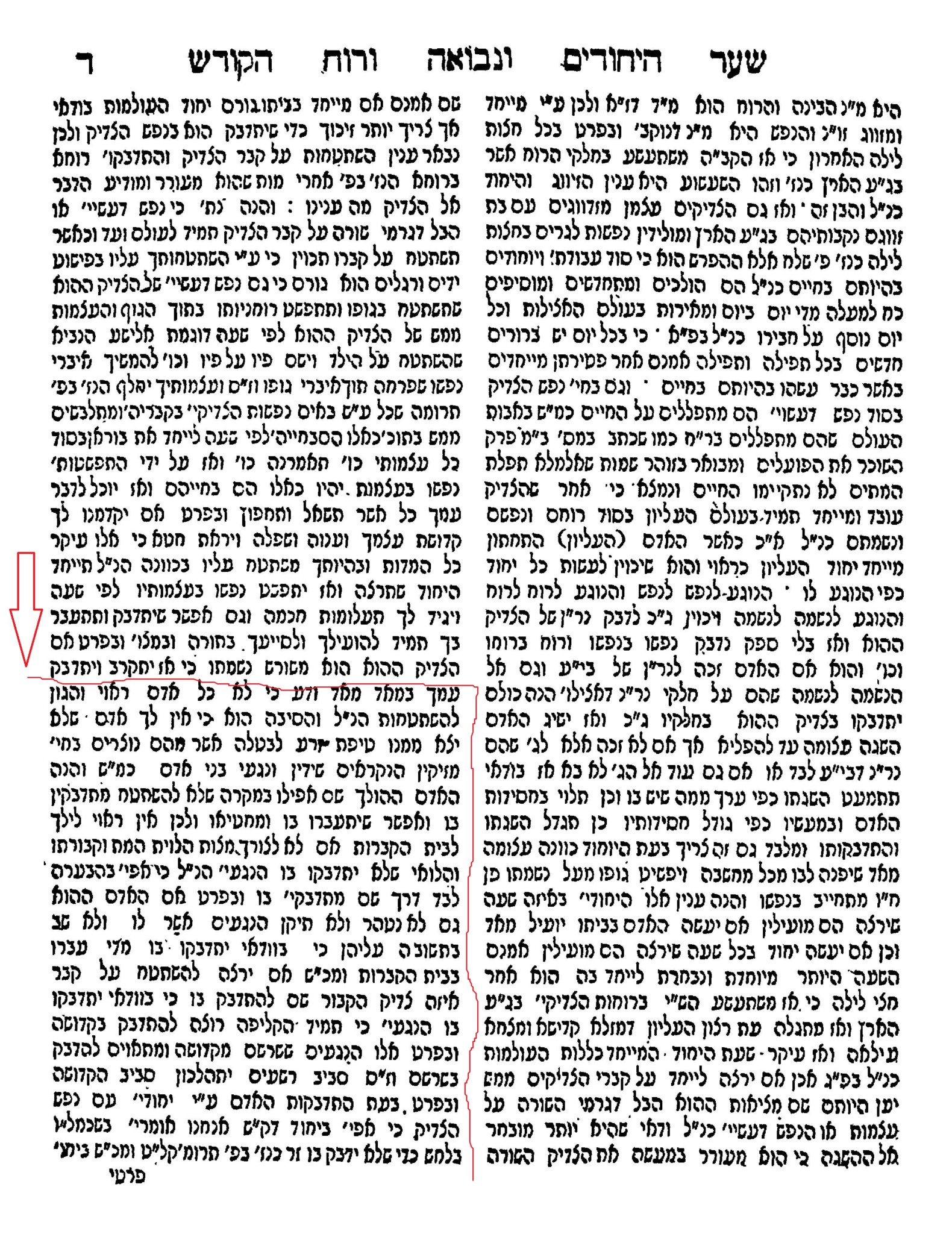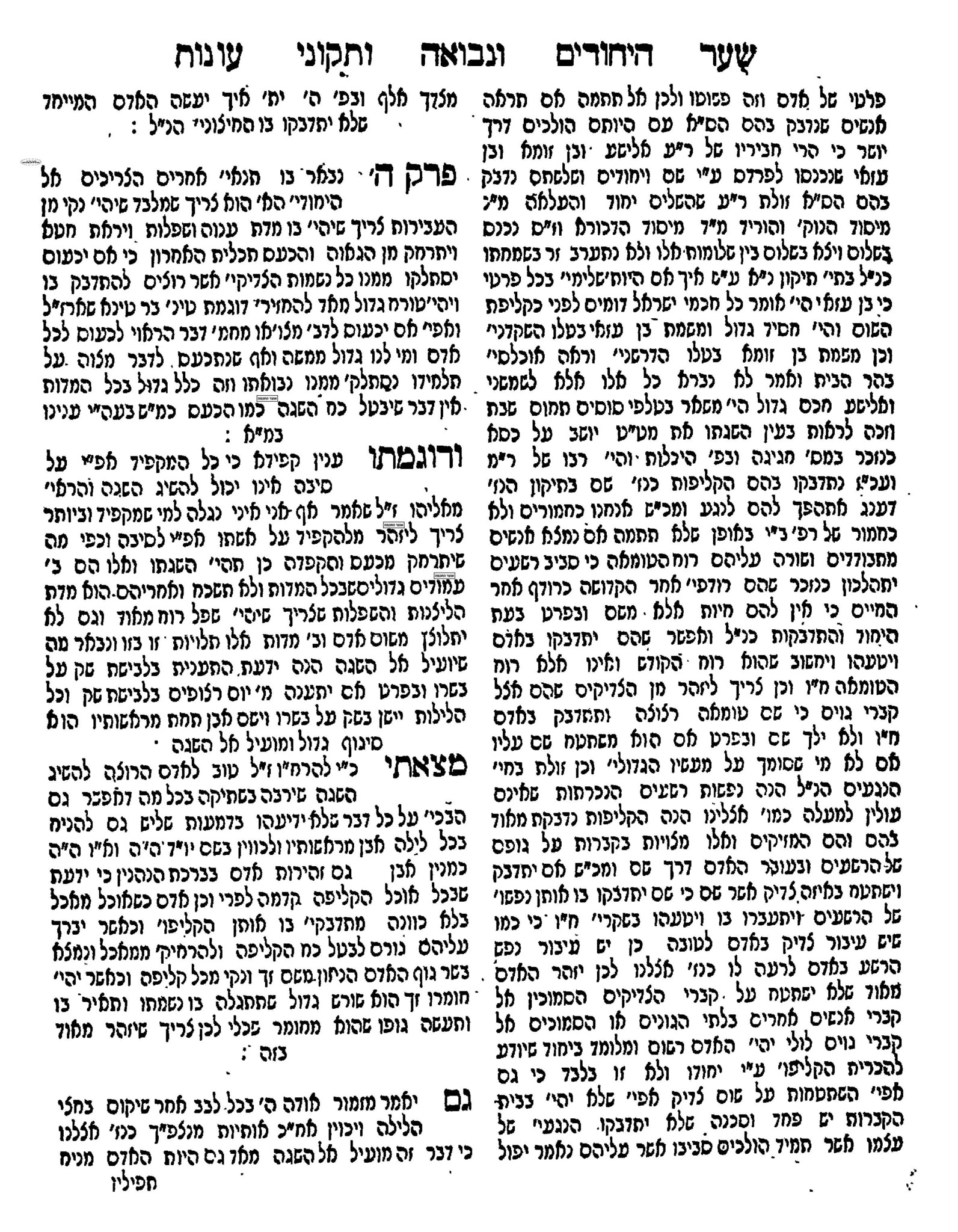The Vowels in G-d’s Name
You are happily learning Tanach (scripture), and suddenly you bump into a vague combination of G-d’s names; something like this (Samuel B 7:22) —
עַל כֵּן גָּדַלְתָּ אֲדֹנָי יֱהֹוִה כִּי אֵין כָּמוֹךָ וְאֵין אֱלֹהִים זוּלָתֶךָ בְּכֹל אֲשֶׁר שָׁמַעְנוּ בְּאָזְנֵינוּ.
Outside Israel, your early teachers probably told you to ignore all and every permutation of orthography in G-d’s Four-Letter Name. Follow tradition and read “Adonoy” \ “Adonai” (called “Adnus”), they said. This doesn’t always work, however, and this here is a prime example.
We have ourselves a clear mention of Adnus followed by YHVH. Should we read the verse as “Adonoy Adonoy”? Reading this way doesn’t even make sense in the context. What are we supposed to do?
If you possess some experience, you are aware that G-d’s Adnus name is repeated only twice in scripture. You may also remember how the piece in question was read in the synagogue for Torah or Haftarah. Then again, how can the Reader himself recognize what to do? No, there’s no rule that when preceded by Adnus, it is read as Elokim. Is there some way to always tell for sure?
Yes. Some of you are already familiar with it, but many might not be – until now.
YHVH is usually pronounced as “Adonoy”.
When preceded by another letter (כלב), the Adnus spelling is explicit (Patach, Cholam, Kametz), with a silent Aleph, cf. Joshua 22:22, Psalms 11:1, Genesis 4:3 —
אֵל אֱלֹהִים יְהֹוָה אֵל אֱלֹהִים יְהֹוָה הוּא יֹדֵעַ וְיִשְׂרָאֵל הוּא יֵדָע אִם בְּמֶרֶד וְאִם בְּמַעַל בַּיהֹוָה אַל תּוֹשִׁיעֵנוּ הַיּוֹם הַזֶּה.
לַמְנַצֵּחַ לְדָוִד בַּיהֹוָה חָסִיתִי אֵיךְ תֹּאמְרוּ לְנַפְשִׁי {נוּדִי} הַרְכֶם צִפּוֹר.
וַיְהִי מִקֵּץ יָמִים וַיָּבֵא קַיִן מִפְּרִי הָאֲדָמָה מִנְחָה לַיהֹוָה.
Still, most mentions of the Four-Letter Name of G-d, YHVH, are laden with the vowel points: Shva, Cholam, and Kametz. There is a good reason for this.
The original Adnus is actually supposed to begin with a Shva. Since the Alef of Adonoy cannot be voweled with a Shva, it is given a Chataf-Patach instead. In its YHVH form, it reverts back to the Shva. Kametz never appears two consonants away from the accent: אָדון is fine; אָדוני is not.
By the way, this demonstrates the abysmal ignorance of Bible critics and some Christians who separate G-d into several deities based on the varying names, when in truth the spelling reveals that they are one and the same. In fact, the Kabbalists actually combine the two names for mystical purposes.
Some Cursedian sects already pronounce the name as “Jehovah”… (Their full names may definitely be blotted out!)
The vowels are always guideposts!
Take another example (Psalms 71:16) —
אָבוֹא בִּגְבֻרוֹת אֲדֹנָי יֱהֹוִה אַזְכִּיר צִדְקָתְךָ לְבַדֶּךָ.
Look closely at the vowels on YHVH. We see a Chataf-Segol, a Cholam, and then a Chirik. Can you think of any other word containing the same spelling? That’s right; YHVH now holds the precise diacritics for the word “Elokim”. This tells us not to read this as Adnus, but as Elokim.
OK, your turn! How do we read these verses (Samuel B 7:29, Ezekiel 28:6)?
וְעַתָּה הוֹאֵל וּבָרֵךְ אֶת בֵּית עַבְדְּךָ לִהְיוֹת לְעוֹלָם לְפָנֶיךָ כִּי אַתָּה אֲדֹנָי יֱהֹוִה דִּבַּרְתָּ וּמִבִּרְכָתְךָ יְבֹרַךְ בֵּית עַבְדְּךָ לְעוֹלָם.
לָכֵן כֹּה אָמַר אֲדֹנָי יֱהֹוִה יַעַן תִּתְּךָ אֶת לְבָבְךָ כְּלֵב אֱלֹהִים.
You get the idea. But some editions don’t realize this (or are designed for fools). Here’s a quote from the introduction of the Koren English translation of 1982 —
THE NAME OF THE LORD: In all other editions the name of the Lord JHVH is printed with nikkud (vowels) which may mislead the reader to read this name as it is strictly forbidden to do. The name of the Lord has to be read in “Adonoot”. In the Koren edition the name is printed without vowels: this eliminates the possibility of the forbidden reading and emphasizes the holiness of this name.
They still follow the same rule in 1992 (the Hebrew IDF edition) —
שם הוי”ה בא בספר בלא ניקוד, כדי למנוע חילול השם על ידי קריאה לא נכונה, לפי הניקוד.
I think most versions of scripture leave the vowels as is, but I presently lack other editions nearby to compare. Based on an informal survey I conducted, this is a mystery to even some scholars. I even found pocket editions of Psalms introduced with a guide to assist the reader in the correct vocalization of several “complex” instances of G-d’s names appearing in Psalms!
Have something to say? Write to Avraham Rivkas: CommentTorah@gmail.com


